When my daughters were young, I used to rely on this piece of insight from a parenting expert (I can’t remember who) to help them navigate the inevitable tussles and power struggles that created bewildering conflict among their peers:
Most people just want to feel important and included.
You’d have to ask them if it helped (I recall them accusing me of taking the other person’s side instead of being a fiercely loyal Mama Bear), but I maintain that, after the heat of the moment had passed, they begrudgingly admitted that it was true, and went a long way to explain hurt feelings, attention grabs, and so much more.
Turn out, that advice isn’t just for kids. At the ripe old age of 63 and 3/4, I’m finding this reminder helpful as I learn new skills, navigate new multicultural spaces, think about family dynamics, follow discourse on Substack, and react to the state of the world.
Belonging and esteem sit squarely in the middle of Maslow’s hierarchy of needs.
Sometimes I feel like I’m standing on a bird viewing station looking out in the distance and listening to the cries of birds, some visible, some not. I haven’t fully succumbed to the mid-and later-in-life birdwatching trope (but I want to), but there is something about having the time and the experience to observe and listen.
You learn a lot that way and I dare say that most of the time it makes you kinder.







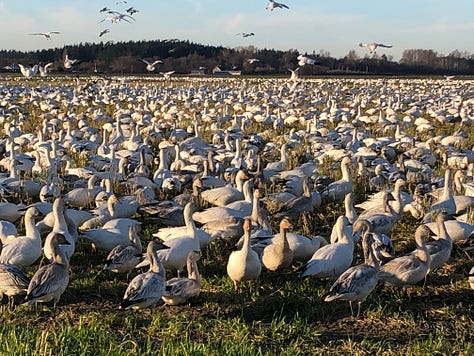
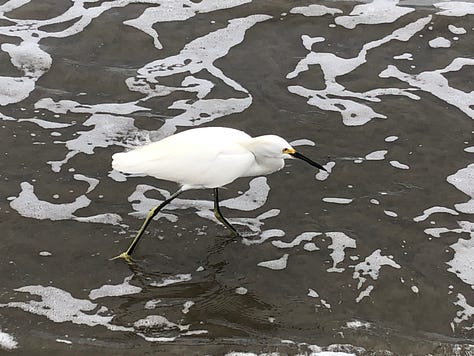
You can read about my time as a heron nest monitor while I was going through cancer treatment here.
When I was young, I traveled around Europe with a Eurail pass and stayed in a lot of youth hostels. Walking into the common room was always a revelation and a quick way to make some assumptions about different nationalities and their traits, as well as about people in general — who dominates, who hangs back, who is comfortable operating solo, who seeks the support of a partner or a pack, who is friendly, who is reticent.
Decades later, when I started playing pickleball in Seattle, I likened it to that youth hostel experience. On the court were all sorts of people (and several different nationalities) — the loud, brash ones, the reserved serious ones, the friendly ones, the competitive ones, the cliquey ones, the ones who were kind to new players, the ones who (sometimes harshly) gave unsolicited advice.
Navigating life in a new country is not much different from navigating life in a youth hostel, on a pickleball court, or as a mom at a new school (oh, the PTA stories I could tell). But the wine is better.
Our multinational experiences on and off the pickleball court here in Portugal helped us decide to move here. I wanted to be shaken and stirred and I am on a regular basis. Sometimes it’s exhilarating, sometimes it’s exhausting. It’s almost always amusing or inspiring.

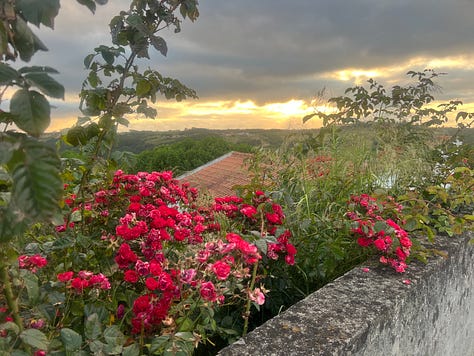
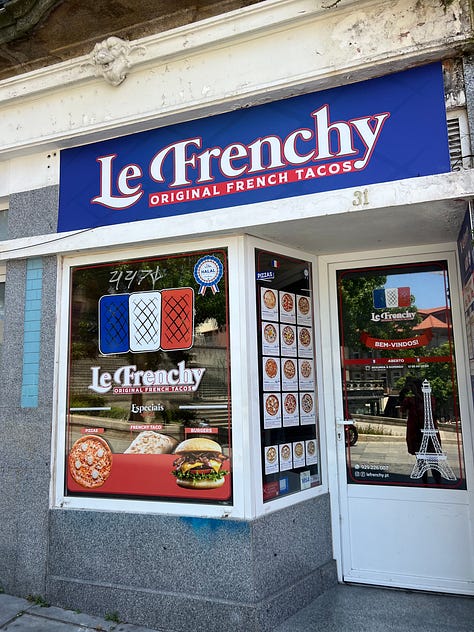

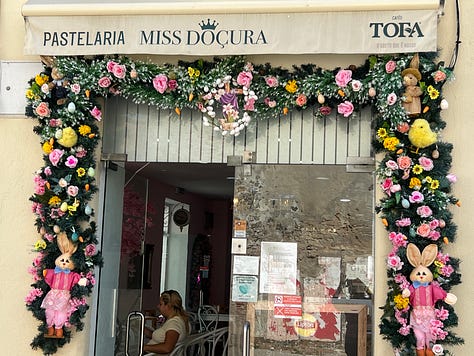

I’m not telling you anything you don’t already know yourself from experience, from reading Brené Brown, or from scrolling Instagram. But I’m coming to believe that age can bring a softness to how we perceive and react to human interaction.
It’s no secret that I am one of a legion of admirers of
. Her first book, Between Two Kingdoms, got me through a harrowing medical crisis. The Substack community she created, The Isolation Journals, has sustained and consoled me. And now, her latest book, The Book of Alchemy, which J brought me back from the US, is inspiring me and making me grateful to be part of the fellowship of humanity.
In
, Suleika shared an essay and a prompt from writer , which tapped into what I had been feeling about the vulnerability I see all around me, and particularly on Substack. Here’s the note I posted, along with Jayson’s beautiful quote.To put it another way, a story I’ve probably told too many times is about years ago stumbling on the Facebook profile of someone from my hometown. Beneath her photo, she had this tagline, which I absolutely love:
I’m just a fucked up girl, trying to find some peace.
Aren’t we all?
The Best Things I’ve Cooked (and not cooked) During a Heat Wave


In the spirit of that over-used line, there’s more that unites us, than separates us, I want to talk about peppers and how many cultures have their version of slow, sautéed peppers, often different types, sometimes with tomatoes, usually with olive oil, often with eggs.
During our last heat wave, a few weeks ago, I went down the rabbit hole of pipérade and peperonata and eventually, using
‘s recipe for Pipérade dip as my foundation, sautéed peppers (I used red, orange, and green), tomatoes, onion, garlic, and piment d’Espelette, an understated Basque pepper that I adore, and of course olive oil. I served it mixed into scrambled eggs. You can freestyle it and because I went a little crazy with photos and am running out of room, I’m just going to link to a gift recipe from NYT cooking to give you something to work with.Don’t judge me. I’m just an overheated girl trying to find some peace.
We’re having another heat wave now. Though I was giddy when I discovered that here you can buy gazpacho in a carton (and I did so a few weeks ago), the other day I decided to make my own. My favorite version is Salmorejo, aka Cordoban gazpacho.
Here’s a good Food and Wine recipe for Salmorejo from
. I tend to be a little more liberal with the sherry vinegar.How do you navigate interpersonal and climactic heat? As always, please share your experiences in the comments.




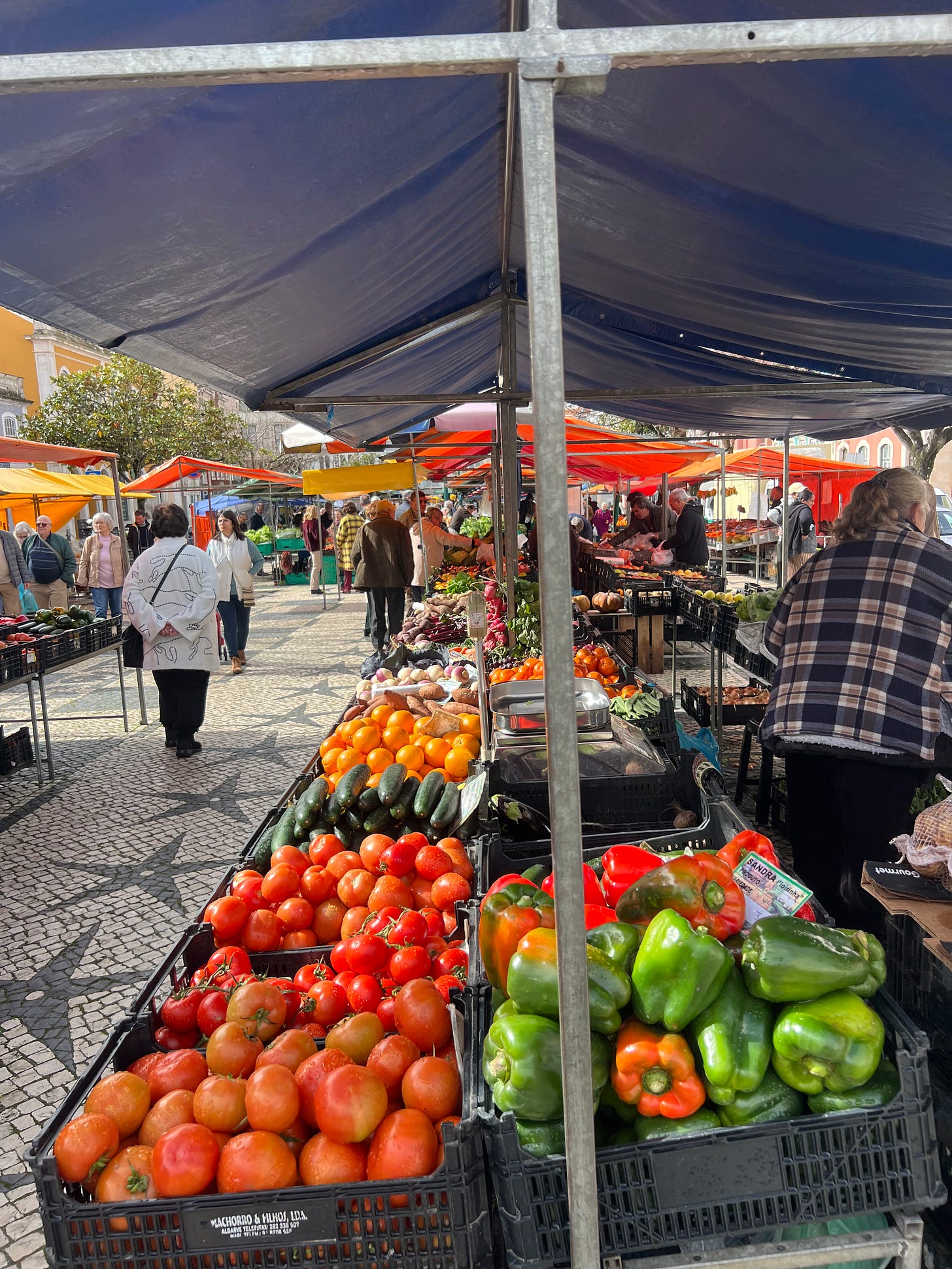

"I'm just a xyz girl..." Yup. Trying to find a way -- thanks for your insights!
What a terrific tagline from that FB profile. Seems like it could apply to so many of us from your hometown.